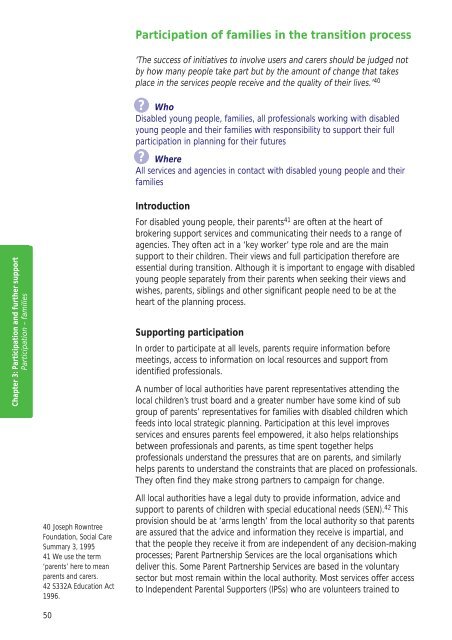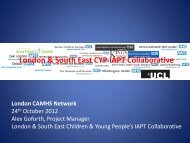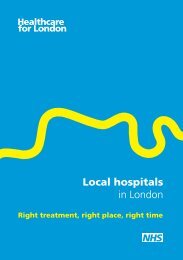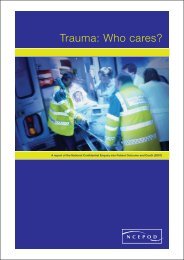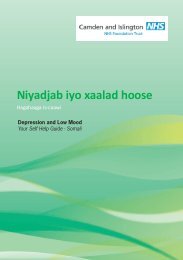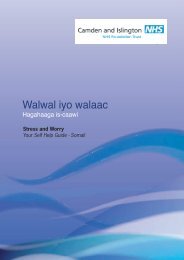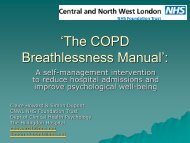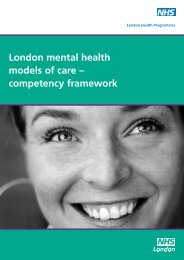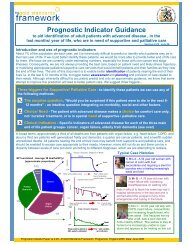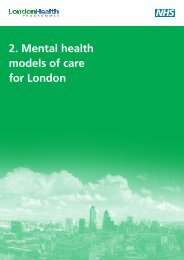A Transition Guide for All Services - Transition Information Network
A Transition Guide for All Services - Transition Information Network
A Transition Guide for All Services - Transition Information Network
- No tags were found...
You also want an ePaper? Increase the reach of your titles
YUMPU automatically turns print PDFs into web optimized ePapers that Google loves.
Participation of families in the transition process‘The success of initiatives to involve users and carers should be judged notby how many people take part but by the amount of change that takesplace in the services people receive and the quality of their lives.’ 40?WhoDisabled young people, families, all professionals working with disabledyoung people and their families with responsibility to support their fullparticipation in planning <strong>for</strong> their futures?Where<strong>All</strong> services and agencies in contact with disabled young people and theirfamiliesChapter 3: Participation and further supportParticipation – familiesIntroductionFor disabled young people, their parents 41 are often at the heart ofbrokering support services and communicating their needs to a range ofagencies. They often act in a ‘key worker’ type role and are the mainsupport to their children. Their views and full participation there<strong>for</strong>e areessential during transition. Although it is important to engage with disabledyoung people separately from their parents when seeking their views andwishes, parents, siblings and other significant people need to be at theheart of the planning process.Supporting participationIn order to participate at all levels, parents require in<strong>for</strong>mation be<strong>for</strong>emeetings, access to in<strong>for</strong>mation on local resources and support fromidentified professionals.A number of local authorities have parent representatives attending thelocal children’s trust board and a greater number have some kind of subgroup of parents’ representatives <strong>for</strong> families with disabled children whichfeeds into local strategic planning. Participation at this level improvesservices and ensures parents feel empowered, it also helps relationshipsbetween professionals and parents, as time spent together helpsprofessionals understand the pressures that are on parents, and similarlyhelps parents to understand the constraints that are placed on professionals.They often find they make strong partners to campaign <strong>for</strong> change.40 Joseph RowntreeFoundation, Social CareSummary 3, 199541 We use the term‘parents’ here to meanparents and carers.42 S332A Education Act1996.<strong>All</strong> local authorities have a legal duty to provide in<strong>for</strong>mation, advice andsupport to parents of children with special educational needs (SEN). 42 Thisprovision should be at ‘arms length’ from the local authority so that parentsare assured that the advice and in<strong>for</strong>mation they receive is impartial, andthat the people they receive it from are independent of any decision-makingprocesses; Parent Partnership <strong>Services</strong> are the local organisations whichdeliver this. Some Parent Partnership <strong>Services</strong> are based in the voluntarysector but most remain within the local authority. Most services offer accessto Independent Parental Supporters (IPSs) who are volunteers trained to50


